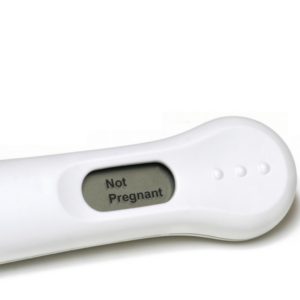Clutching a rim of prescriptions and medical reports, 28-year-old Shayista (name changed) is calmly waiting for her turn with infertility specialist at Rotunda Hygeia Srinagar.
ÔÇ£This is my second visit,ÔÇØ she says. Her eyes lit up when she saw smiling the faces of women coming out of the doctorÔÇÖs chamber.
After a few minutes of pin drop silence, she opens up a bit.
ÔÇ£From past five years, I keep changing doctors and medicines but nothing helped. People started asking wired questions. I didnÔÇÖt want to be defined by the fact that I couldnÔÇÖt have babies.ÔÇØ Says Shayista
Shayista is not alone to face problem of infertility. In Kashmir, about thousands like her are forced to go for assisted reproduction. Yet the advice they may hear is often not only unhelpful, it sometimes just plain wrong.

To set the record straight, weÔÇÖve asked several gynecological experts to bust these myths about infertility. Scroll down to know more…
Myth 1:  All you need to do is just relax
Though it is true, relaxing could help to coop with infertility caused by chronic stress but it is not always a physiological issue. It is actually a medical condition.  Not always a refreshing vacation  can fix Your physical and reproductive health.
Myth 2: Fertility is only womanÔÇÖs issue
Men find hard to grapple with infertility due to the social stigma attached to it. Despite women being the general target of pregnancy topics, man can too have low sperm count leading to infertility. In fact, each sex has their own set of symptoms that may suggest infertility.
Myth 3: Age only affects womenÔÇÖs fertility, not menÔÇÖs
Women experience a significant decline in fertility, sometimes as much as 50 per cent, between the ages of 32 and 37, according to Dr Ruheel Nissa, a gynecologist at Kashmir’s first IVF canter Rotunda Hygeia . However, women arenÔÇÖt the only ones affected by age.
ÔÇ£Like female infertility, male infertility rates increase with age,ÔÇØ says Dr Ruheel NissaÔÇ£ ┬áAfter the age of 40, a man is likely to start experiencing decreases in semen volume and motility.ÔÇØ
Myth 4: Not to worry about infertility, if you already have a child
Data shows that approximately 30 per cent of infertility happens after the first child. This means even if a couple already has a child or children, they can experience difficulty in getting pregnant later.
ÔÇ£My husband and I easily had our first child, with no problems at all,ÔÇØ says Nowsheen, who had her first daughter at age 27. ÔÇ£We had no idea of having infertility but from one year I am on medication.ÔÇØ
Myth 5: Your health doesnÔÇÖt impact fertility
In reality, one of the largest factors of fertility for men and women comes down to health.
ÔÇ£If we try to live a healthy lifestyle, it will really help address infertility issues,ÔÇØ Says Dr.Masrat ÔÇ£You have to know your body, listen to your body, and try to live healthy before you even start thinking about having a baby.ÔÇØ
 Things to keep In mind :
Things to keep In mind :
- maintain a healthy weight
- take multivitamins
- refrain from drugs and high alcohol use
- cut back on smoking

